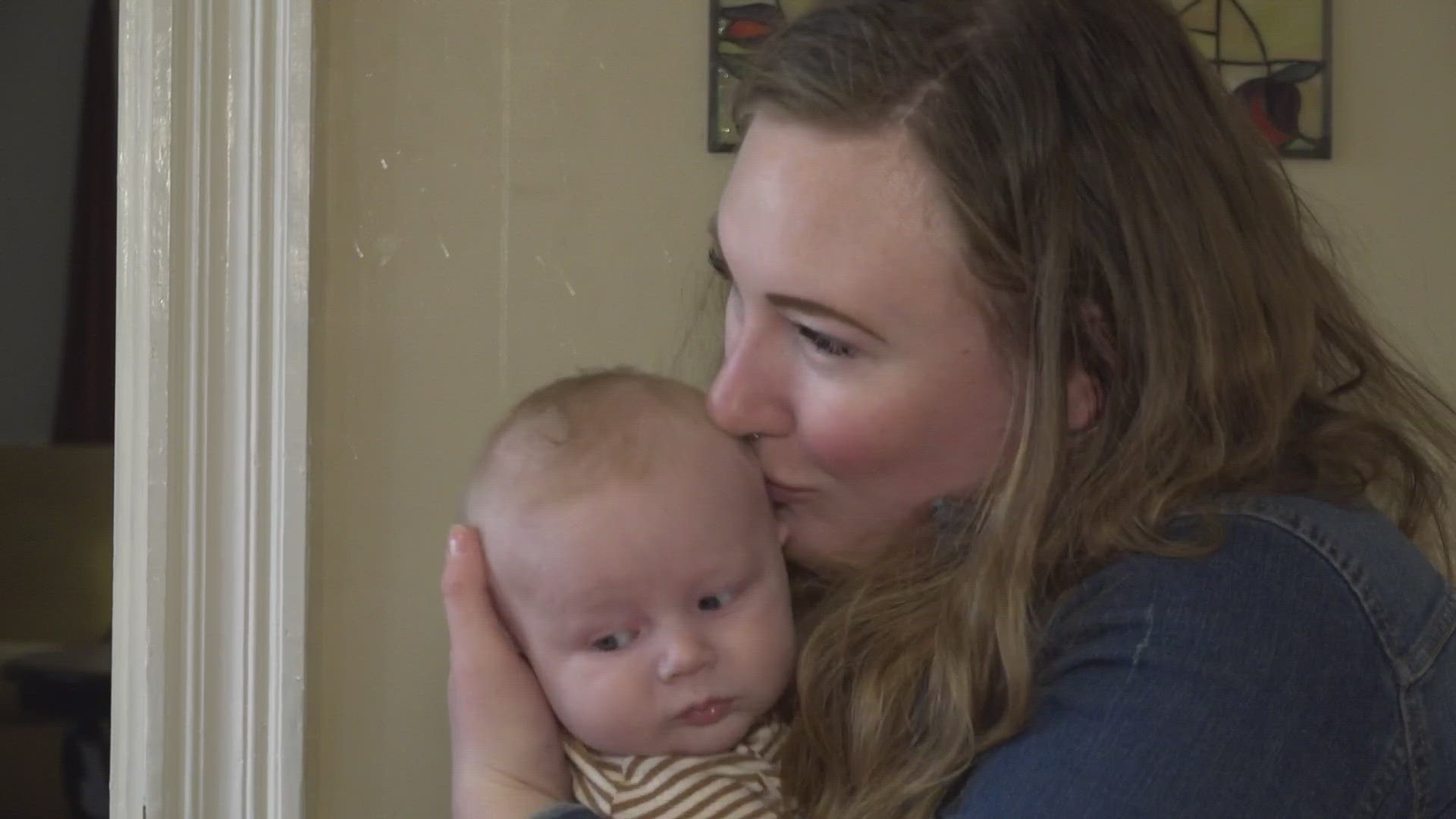LISBON, Maine — For Kimberly Murphy of Lisbon Falls, life has changed substantially since three months ago. That's when she gave birth to her first child, Lucien, a babbling baby with blue eyes and a tendency to smile. His delivery, though, didn't go exactly as according to plan. And in many ways, Murphy is lucky to still be here.
Murphy said she was four days past her due date when she finally went into labor. During delivery, her placenta ruptured, and she started hemorrhaging. She said she remembers doctors putting her son on her chest and then placing an oxygen mask over her face.
"I lost a lot of blood," Murphy said.
Murphy said she needed to have two blood transfusions. She stayed in the hospital for an extra couple of days and was then able to go home and begin her maternity leave — but she said she was grateful that blood was available at the moment she needed it.
"When you need that blood, you really don’t care where it’s coming from, as long as you’re getting it," Murphy said.
Murphy's best friend, Victoria Chase, who's currently in medical school, was in the delivery room with her when it happened.
"It was very unexpected, obviously, very nerve-racking," Chase said, later adding, "Everyone was kind of freaking out. I was freaking out."
According to the Centers for Disease Control and Prevention, about 700 women in the United States die from pregnancy-related complications every year. Jennifer Costa, the regional communications director for the American Red Cross of Northern New England, said that's the highest rate in the developed world.
"One of the most common reasons for that maternal morbidity is due to severe hemorrhaging or bleeding that can occur anytime during pregnancy," Costa said.
Costa said right now, the blood supply nationwide is at a stable but vulnerable level. She said in Maine, 1,064 different people need to roll up their sleeves every week to help a patient in need. She said about 63 percent of the U.S. population is eligible to donate blood, but only three percent give blood.
"[Murphy] didn’t wake up that morning thinking, 'I’m going to need blood today.' None of us do," Costa said.
If you're interested in donating blood with the American Red Cross, click here and enter your zip code to find a blood drive near you.

